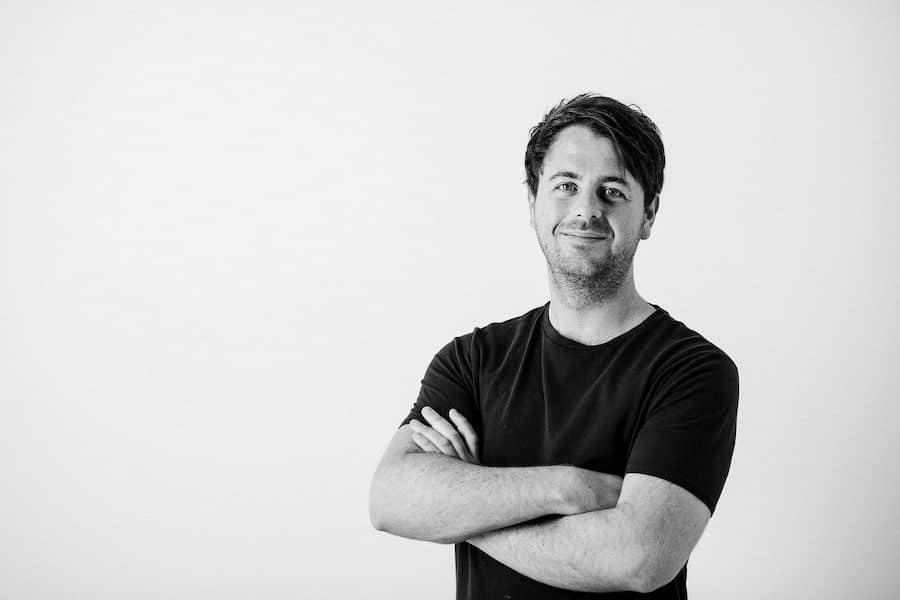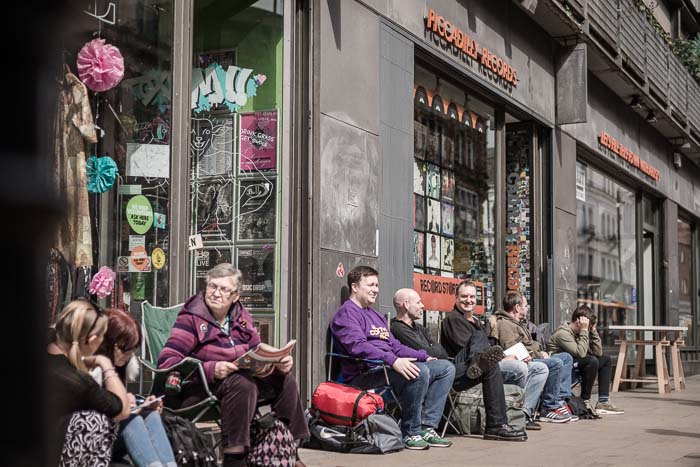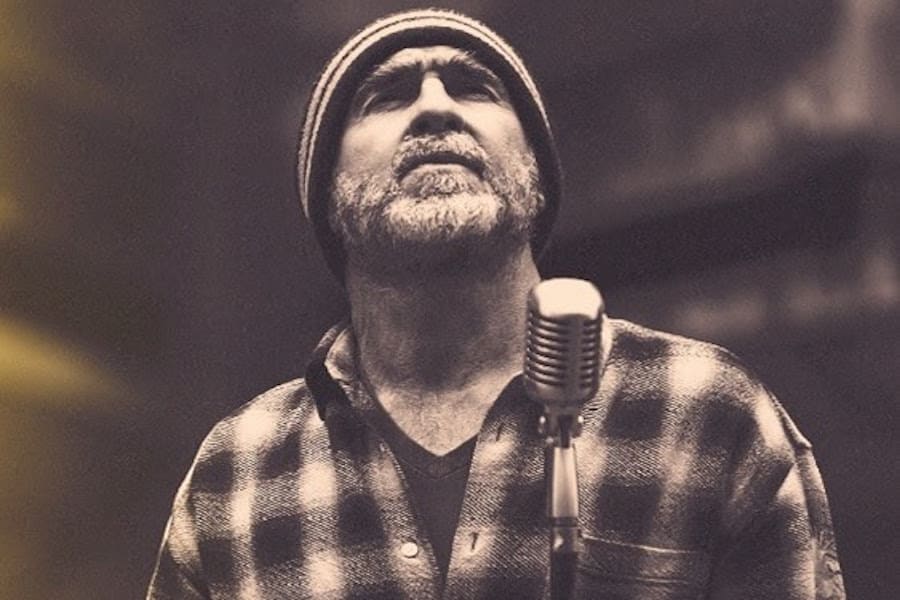Peek behind the therapist’s door in Anxiety Josh’s new book
- Written by Thom Bamford
- Last updated 1 year ago
- City of Manchester, City of Salford, Featured, Health & Wellbeing, People

Have you ever found yourself curious about what goes on behind the closed door of a therapist’s office?
Salford-based therapist Joshua Fletcher, Aka Anxiety Josh, has written a new book that delves deep into the workings of the human psyche via his doctor’s office in Salford in his new book, “And How Does That Make You Feel?”
Joshua Fletcher unveils the deeply personal journeys of four individuals—Levi, Zahra, Noah, and Daphne—as they embark on sessions of therapy.
Interspersed with straight-talking advice on common issues such as anxiety, OCD and panic attacks, as well as a therapist’s guide to how to find the right therapist, And How Does That Make You Feel? is darkly funny, illuminating and full of promise that a better future is always possible.
It’s everything you wanted to know about therapy (and quite a few things you probably didn’t).
From raw vulnerability to moments of profound revelation, Fletcher lays bare the intricacies of their self-discovery and recovery, offering readers a rare glimpse into the transformative power of therapeutic intervention.
But the revelations don’t stop there.
With a candid wit and an expert’s insight, he shares the inner workings of a therapist’s mind—from navigating moments of shock and sympathy to unexpected encounters with former clients on chaotic nights out.
Interwoven with practical advice on prevalent issues such as anxiety, OCD, and panic attacks, this book serves as a roadmap for those seeking solace in therapy.
And it looks like the book is going to turn into a Netflix series, too.
Anxiety Josh and And How Does That Make You Feel?
We sat down with Anxiety Josh to talk about the book, working in Manchester and advice for those who need some help.
“I felt compelled to write as an anxiety therapist, aiming to create a book that’s accessible to everyone, educating them not only about therapy but also about anxiety itself,” Josh explained.
“In the book, we delve into the inner workings of my therapy room in Salford, offering readers a glimpse behind the closed door,” he added.
Josh emphasised his meticulous efforts to protect client anonymity, ensuring details were altered or omitted to prevent identification.
“The unique aspect of the book is that it reveals my inner thoughts while conducting therapy sessions. Previous books have touched on self-help, but I wanted to intrigue readers by sharing what goes on in a therapist’s mind,”
Josh elaborated. “The narrative explores panic attacks, OCD, social anxiety, and depression, guiding readers through therapy and methods to overcome anxiety.”
He hopes the book elicits a range of emotions and fosters a deeper understanding of the enigmatic concept of anxiety.
Manchester has played a significant role in shaping Josh’s career, starting from his work in Bolton at a pupil referral unit.
He credits his experiences there for teaching him about diversity, individuality, and the complexities of the human mind.
He began his career in Bolton at a pupil referral unit, where he served as the lead behaviour mentor for children who had been expelled.
Reflecting on his time there, Josh expressed admiration for his colleagues and the unique culture of Bolton.
Interacting with the children at the unit, Josh gained valuable insights into the diversity of minds and experiences.
He recognised the individual challenges they faced, including neurodiversity and anxiety, which deepened his understanding of psychology and learning.
Having lived in Manchester since the age of 21, Josh identified strongly with the city’s identity. He highlighted the city’s humour, candid nature, music, and sports as integral aspects of its culture.
“There’s a lot of northern humour in the book, which I hope translates. If you can’t laugh at yourself, you’re struggling I think.
“I used to do a bit of stand-up at the Frog and Bucket, and a bit in Wigan. I loved it. I think Mancs have a great sense of humour.
“The humour in the book comes from a place of hey, I’ve been there and you know, it’s okay.
“We can laugh and share about this experience.”
The work is not without its rewards, despite its difficulty, as Josh explained.
“My best feeling is when you see someone who doesn’t believe in themselves—when they’re crippled by anxiety, panic attacks, agoraphobia.
“Maybe they’ve been haunted by intrusive thoughts, traumatic memories, etc., and they feel hopeless. You see all the hard work that they put in, and you help guide them, but ultimately it’s them.”
“And then,” he continued with a sense of pride, “the smile on their face when they realise they’ve achieved more than what they thought they could.
“And their self-belief grows, and their world becomes bigger, and they can access more things.
“Seeing people advocate for themselves, and realise they’re capable of more than what they think is one of the most rewarding things.”
Reflecting on the challenges in his work, Josh remarked, “Each client comes with their challenge because they’re human and I’m human, and sometimes that dynamic needs work.
“Therapy is always challenging because you’ve got to stay in the frame of reference of your client. But it’s a challenge I like to take up. It’s part of the excitement, particularly when you’ve got a new client that’s about to come in.”
Josh said he is pleased that mental health problems have become less stigmatised, and it has become less taboo to talk about these things.
“I’m glad people feel less isolated and happier to address these problems. When someone talks about their experiences too it’s not only liberating for the person talking, but also for the person hearing that and the feeling of not being alone.”
Josh’s advice for navigating mental health challenges is not only practical but deeply empathetic.
He emphasises the importance of understanding one’s mental processes, urging individuals to embark on a journey of self-discovery and education.
“My first piece of advice would be to learn about what is happening to your body,” he shares, reflecting on his journey.
“If you struggle with anxiety and anxiety disorders, psychoeducation is so important. I wish I had learned this when I was poorly.”
He encourages a shift in perspective, reminding individuals that their current emotional state is just a temporary lens through which they view the world.
“Those shit-tinted glasses, if you’re feeling like it’s the opposite of if you’ve been on a first date and you’ve seen the world through rose-tinted glasses.”
This acknowledgement of the transient nature of emotions is empowering, offering solace in the understanding that feelings, no matter how overwhelming, eventually pass.
Moreover, Josh advocates for embracing personal growth and resilience. “Realise and start to even rationally take into account that you are capable of more than you think you are,” he urges.
This call to recognise one’s inherent strength and potential serves as a beacon of hope for those navigating their mental health journey. He encourages individuals to reflect on their progress, highlighting the significance of personal milestones in fostering resilience and self-belief.
In addition to self-awareness and resilience, Josh underscores the importance of seeking professional support and destigmatising therapy.
“Always speak to a doctor or mental health team. The book is written to encourage people to see therapists,” he advises. By normalising therapy as a preventative measure rather than a last resort, Josh challenges the notion of seeking help only when one hits rock bottom. His personal experience underscores the transformative power of therapy in processing grief, trauma, and identity struggles.
Ultimately, Josh’s message is one of resilience, hope, and growth potential.
“Don’t feel hopeless,” he emphasises, reassuring individuals that the brain possesses a remarkable capacity for change.
“It has a remarkable ability to rewire itself.”
By embracing education, perspective shifts, personal growth, and professional support, individuals can navigate their mental health challenges with courage and resilience, knowing that brighter days lie ahead.
Anxiety Josh new book is available from March 14th for £16.99 from Waterstones by clicking here
- This article was last updated 1 year ago.
- It was first published on 28 February 2024 and is subject to be updated from time to time. Please refresh or return to see the latest version.
Did we miss something? Let us know: press@ilovemanchester.com
Want to be the first to receive all the latest news stories, what’s on and events from the heart of Manchester? Sign up here.
Manchester is a successful city, but many people suffer. I Love Manchester helps raise awareness and funds to help improve the lives and prospects of people across Greater Manchester – and we can’t do it without your help. So please support us with what you can so we can continue to spread the love. Thank you in advance!
An email you’ll love. Subscribe to our newsletter to get the latest news stories delivered direct to your inbox.
Got a story worth sharing?
What’s the story? We are all ears when it comes to positive news and inspiring stories. You can send story ideas to press@ilovemanchester.com
While we can’t guarantee to publish everything, we will always consider any enquiry or idea that promotes:
- Independent new openings
- Human interest
- Not-for-profit organisations
- Community Interest Companies (CiCs) and projects
- Charities and charitable initiatives
- Affordability and offers saving people over 20%
For anything else, don’t hesitate to get in touch with us about advertorials (from £350+VAT) and advertising opportunities: advertise@ilovemanchester.com


The Manc aerobics queen who trained the Corrie cast is helping raise charity cash

Ancoats to get even cooler as independent market set for MOT garage site

“Manchester is not Britain’s second city, it’s the first” – Jeremy Clarkson
















